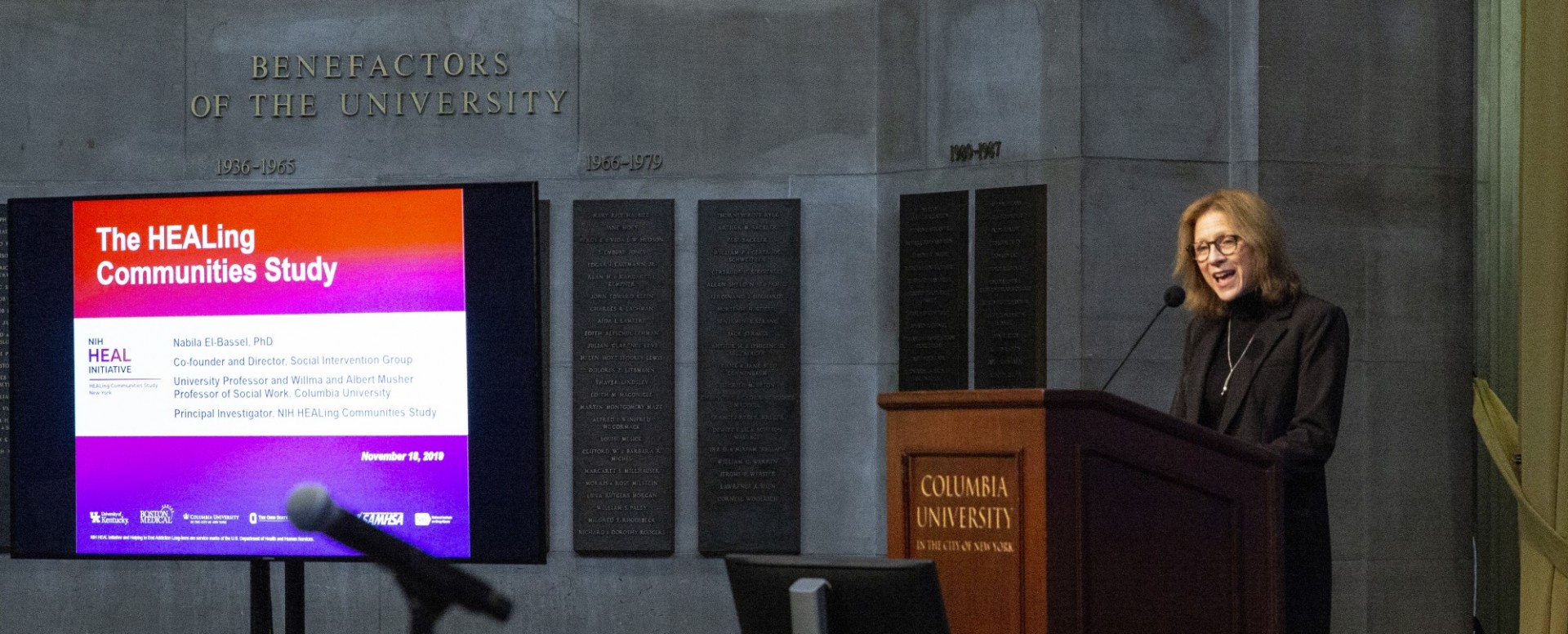MSW Curriculum
Columbia School of Social Work offers a program of rigorous coursework that informs and enriches each student’s practicum experience. Our Curriculum Committee is the major body providing oversight of the school’s M.S. educational program, including curriculum policy, design and content
Social Work Courses and Practicum Requirements
The MSW Program at Columbia University prepares students for entry into specialized Social Work practice. Our curriculum emphasizes:
- Promoting social and economic justice, particularly for populations at risk
- Practicing with diverse populations
- Evaluating practice outcomes
The MSW is earned by completing a progressive sequence of courses in accordance with the standards of the Council on Social Work Education (CSWE), the School’s accrediting body. All students are required by the CSWE to take courses in:
- Human behavior and the social environment
- Social welfare policy and services
- Research
- Social work practice
- Practicum Learning
This last requirement, Practicum Learning is the most distinguishing feature of a specialized Social Work degree. All MSW students are required to apply their academic training within a professional setting.
Columbia MSW students complete a combined total of 60 credits:
- 42 credits come from coursework
- 18 credits (almost a third) from Practicum Learning. These 18 credits represent 1,200 practicum hours.
Students have to complete two practicums, one at the generalist level (600 hours) and the second at the specialist level (600 hours).
NOTE: Advanced Standing and Transfer Program students are required to complete 600 hours of Practicum Education (they enter the program as specialized-year students). One-Year Residency for Working Professionals (Reduced Residency) students must complete 900 hours.
Generalist Year
With few exceptions, the following generalist-year courses are required of all MSW students:
- Required background (or “core”) courses:
- Three generalist practice courses:
- Practicum Learning (two terms): In the first year, our Practicum Learning Department matches students with agencies that provide experience with direct social work practice.
At the completion of the generalist year, on-campus students select from four methods and seven fields of practice (a total of 28 options) in preparation for their specialized practice year. At that time, academic and practicum advisors play an important role in ensuring that students will spend the remainder of their studies gaining skills for the area of specialization where they most want to make a difference.
*Online students can choose from three methods (all but AGPP) and two fields of practice.
NOTE: Within three of the method areas:
- Leadership Management and Social Entrepreneurship for Social Justice, Policy Practice, and Advanced Clinical Social Work Practice - we offer specialized programming tracks:
- The Accelerated Policy Program
- The Dialectical Behavior Therapy Program
Specialized Practice Year
Students take the following courses during their specialized year:
- Two practice courses in the chosen area of specialization
- A required course in the field of practice related to the final-year practicum placement
- A specialized research course
- Practicum Learning (two terms): During the specialized practice year, students have more choice in their practicum assignments as the focus shifts to their chosen area of specialization.
NOTES:
- Remaining classroom courses are taken as electives.
- Students enrolled in the Accelerated Policy Program and the Dialectical Behavior Therapy Program have additional required coursework.
Other Program Options
If you opt to complete the degree in a year, 16 months, or more than two years, your curriculum will vary somewhat from the standard (two-year) schedule outlined above. The same requirements, however, will need to be met.
For more information about the Online MSW curriculum, please visit the Online Master of Science in Social Work.
